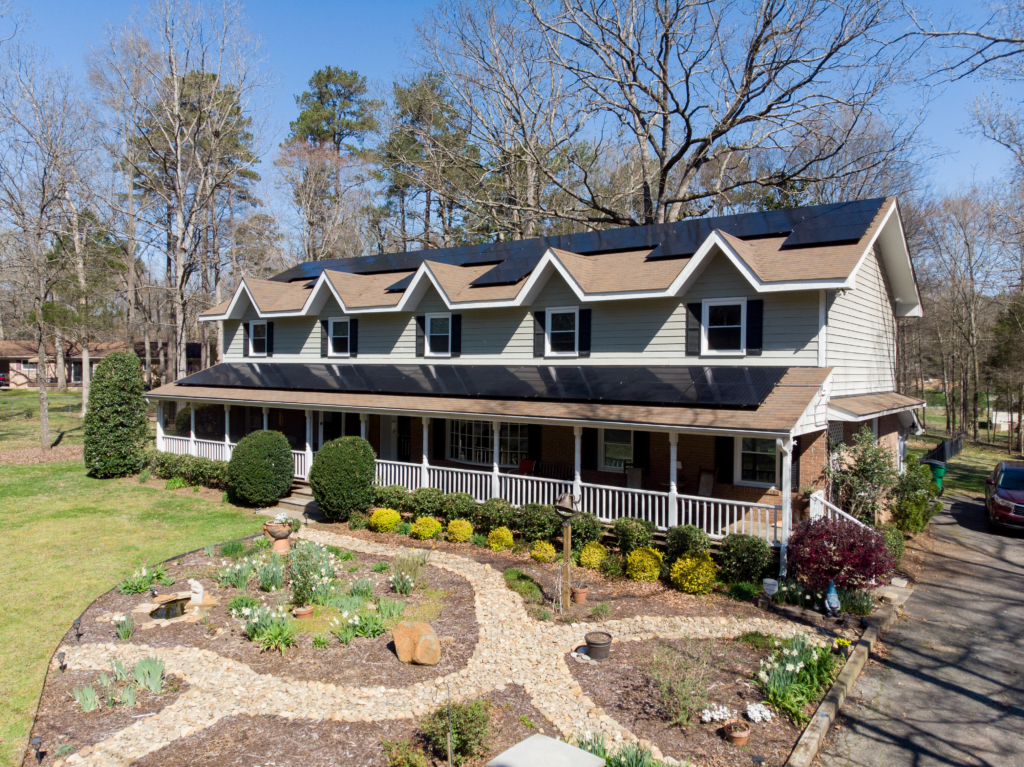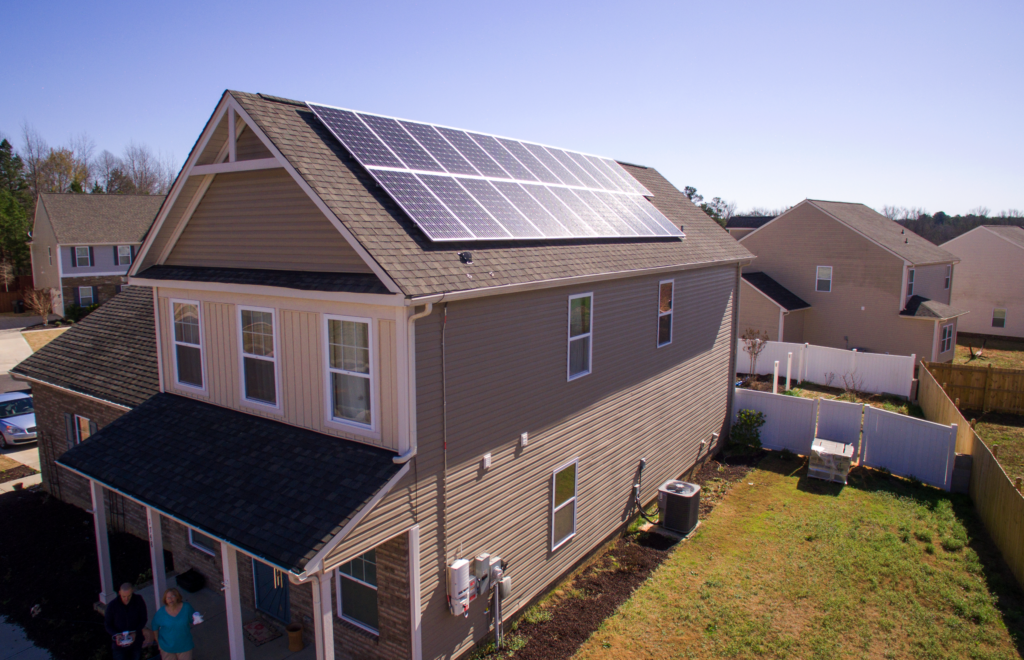Restroom Direct Goes Solar
Awesome Solar CTA. Really Amazing…
Restroom Direct Goes Solar
Located in Mooresville, NC, Restroom Direct was founded in 2008 by Chris Berl and has taken the initiative to go solar with Renu. Restroom Direct is a master distributor of hand dryers, water coolers, drinking fountains, and other restroom and commercial fixtures. They sell their products to contractors, electrical, sanitation, division 10 and other distributors as well as a variety of businesses, including doctors’ offices, laboratories, hospitals, churches, restaurants, theaters, service stations, health clubs, schools, municipalities, government agencies, etc.![]()
Restroom Direct had a 57.96 kW DC system installed which is estimated to produce 75,000 kWh / year.
It is also helpful to remember that when you go solar in North Carolina and South Carolina, you qualify for the Duke Rebate. Starting in 2018, the Duke Energy Carolinas and Duke Energy Progress Utility solar rebate has been available to North Carolina businesses for a solar rebate of $0.50 per Watt(ac). This program ends in 2022 and allows those who invest in solar to receive a 26% Federal tax credit for their solar investment. Thanks to this rebate, Restroom Direct is estimated to save ~$6,100 and ~$16,200 from the duke rebate.
Looking long-term with this investment, Restroom Direct is estimated to produce 1,990,000 kWh and reduce their carbon footprint by 1,550 Tons of C02.
They had 168 x Hanwha Q.Plus LG4.2 345W Modules and 4 x SolarEdge SE14400K-US Inverters installed on QuickMount PV Racking. The overall rooftop and electrical installation took 3 days to complete.
About Renu Energy Solutions
Renu Energy Solutions is a leading full-service solar installer. Local to Charlotte, the company serves North Carolina, South Carolina, and Virginia, and has installed solar for thousands of energy customers since 2010.

Frequently Asked Questions About Commercial Solar Energy Systems:
How exactly does going solar and a solar system itself work?
How many solar panels do I need for my home?
Roof-size/available space: When we look at the size of your roof and the space available, we gather data that tell us the maximum number of solar panels your home or site can hold and we even consider shading. We use a software “Suneye” which takes a 360 picture of your roof and we use this photo to determine if your home is a good candidate for solar.
Energy Usage: When we determine energy usage we look at your past electrical bills from over the course of a year to make sure your system isn’t too big or too small.
Your Budget: We take your budget seriously and most importantly, we want you to be satisfied with our services. We take your feedback on how much you want to spend so that we can size your system appropriately.
What is solar net-metering?
Does Duke Energy offer net-metering?
Curious about the cost of a home solar system?
PV Solar System
Our PV Solar Systems are really, really great and they are priced perfectly and will immediately and fundamentally improve the quality of your life.
Energy Storage
Our PV Solar Systems are really, really great and they are priced perfectly and will immediately and fundamentally improve the quality of your life.
EV Chargers
Our PV Solar Systems are really, really great and they are priced perfectly and will immediately and fundamentally improve the quality of your life.

